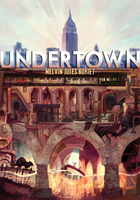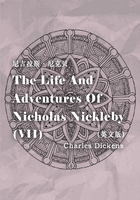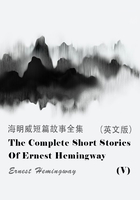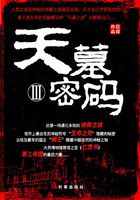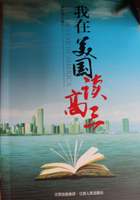Brunetti got to the Questura at eight the next morning, stopping to get the papers on the way. The murder had made the eleventh page of the Corriere, which gave it only two paragraphs, had not made it into La Repubblica, understandable enough on a day that was the anniversary of one of the bloodier terrorist bombings of the Sixties, but had made it to the front page of the second section of Il Gazzettino, just to the left of a story, this one with a photo, about three young men who had died when their car slammed into a tree on the state highway between Dolo and Mestre.
The article said that the young man, whose name was given as Michele Fooster, was the apparent victim of a robbery. Drugs were suspected, though the article, in the manner of the Gazzettino, didn't bother to specify what they were suspected of. Brunetti sometimes reflected that it was a good thing for Italy that a responsible Press was not one of the requirements for entry into the Common Market.
Inside the main door of the Questura, the usual human line snaked its way out of the Ufficio Stranieri, crowded with badly dressed and poorly shod immigrants from Northern Africa and newly freed Eastern Europe. Brunetti could never see that line without a surge of historical irony: three generations of his own family had fled Italy, seeking their fortunes in places as far apart as Australia and Argentina. And now, in a Europe transformed by recent events, Italy had become the El Dorado of new waves of still poorer, still darker immigrants. Many of his friends spoke of these people with contempt, disgust, even anger, but Brunetti could never see them without superimposing upon them the fantasy image of his own ancestors, standing in similar lines, themselves badly dressed, ill-shod, making a hash of the language. And, like these poor devils here, willing to clean the mess and raise the children of anyone who would pay them.
He went up the steps to his fourth-floor office, saying good-morning to one or two people, nodding to others. When he reached the office, he checked to see if there were any new papers on his desk. Nothing had arrived yet, so he considered himself free to do with the day whatever he saw fit. And that was to reach for his phone and ask to be connected with the Carabinieri station at the American base in Vicenza.
This number proved considerably easier to find and, within minutes, he was speaking to Maggiore Ambrogiani, who told Brunetti that he had been put in charge of the Italian investigation into Foster's murder.
'Italian?' Brunetti asked.
'Well, Italian as different from the investigation that the Americans will conduct themselves.'
'Does that mean there are going to be problems of jurisdiction?' Brunetti asked.
'No, I don't think so,' the Maggiore answered. 'You people in Venice, the civil police, are in charge of the investigation there. But you'll need the permission or help of the Americans for anything you might want to do out here.'
'In Vicenza?'
Ambrogiani laughed. 'No, I don't want to give that impression. Only here, on the base. So long as you are in Vicenza, the city, then we're in charge, the Carabinieri. But once you come onto this base, they take over, and it's the Americans who will help you.'
'You make it sound as if you have some doubts about that, Maggiore,' Brunetti said.
'No, no doubts. Not at all.'
'Then I've misinterpreted your tone.' But he thought that he hadn't, not at all. 'I'd like to come out there and speak to the people who knew him, worked with him.'
'They're Americans, most of them,' Ambrogiani said, leaving it to Brunetti to infer the possibilities of difficulty with language.
'My English is all right.'
'Then you should have no trouble talking to them.'
'When would it be possible for me to come there?'
'This morning? This afternoon? Whenever you please, Commissario.'
From his bottom drawer, Brunetti grabbed a railway timetable and flipped through it, looking for the Venice–Milan line. There was a train leaving in an hour. 'I can take the nine-twenty-five.'
'Fine. I'll send a car to meet you.'
'Thank you, Maggiore.'
'A pleasure, Commissario. A pleasure. I look forward to meeting you.'
They exchanged courtesies, and Brunetti replaced the receiver. The first thing he did was go across to the cupboard that stood against the far wall. He opened it and began to hunt through the things piled and tossed on the bottom: a pair of boots, three light bulbs in separate boxes, an extension cord, a few old magazines, and a brown leather briefcase. He pulled out the briefcase and dusted it off with his hand. Carrying it back to his desk, he put the newspapers inside, then added a few files he had still to read. From his front drawer, he took a two-week-old copy of Panorama and threw it in.
The ride was a familiar one, along the route to Milan, through a checkered pattern of cornfields burned to painful darkness by the summer drought. He sat on the right side of the train to avoid the slanting sun that still burned through, even though it was September and the ferocity of the summer was gone. At Padova, the second stop, scores of university students crowded off the train, carrying their new text books as though they were magic talismans that would carry them to a sure, better future. He remembered that feeling, that yearly renewal of optimism that used to come to him while he was at the university, as if each year's virgin notebooks carried with them the promise of a better year, a brighter destiny.
At Vicenza, he got down from the train and looked along the platform for someone in uniform. Seeing no one, he went down the steps, through the tunnel that ran under the tracks, and up into the station. In front of it he saw the dark blue sedan marked 'Carabinieri', parked in an arrogant, unnecessary diagonal in front of the station, the driver engaged equally in a cigarette and the pink pages of the Gazzettino dello Sport.
Brunetti tapped on the back window. The driver turned his head languidly, stabbed out his cigarette, and reached back to unlock the door. As he opened the door, Brunetti thought about how different things were here in the North. In Southern Italy, any Carabiniere who heard an unexpected noise from the back of his car would immediately be on the floor of the car or crouched on the pavement beside it, gun in hand, perhaps already firing at the source of the noise. But here, in sleepy Vicenza, all he did was reach, without question, to allow the stranger into his car.
'Inspector Bonnini?' the driver asked.
'Commissario Brunetti.'
'From Venice?'
'Yes.'
'Good morning. I'll take you to the base.'
'Is it far?'
'Five minutes.' Saying this, the driver set the paper on the seat beside him, the latest triumph of Schilacci displayed for a soccer-loving public, and put the car in gear. Bothering to look neither right nor left, he tore out of the station car park, cutting directly into the traffic that flowed past. He skirted the city, cutting back towards the east, in the direction from which Brunetti had come.
Brunetti had not been to Vicenza for at least a decade, but he remembered it as one of the loveliest cities in Italy, its centre filled with narrow, twisting streets along which crowded Renaissance and Baroque palazzi, jumbled together with no regard for symmetry, chronology, or plan. Instead of this, they swung past an immense concrete football stadium, over a high railway bridge, then along one of the new viales that had sprung up all over mainland Italy in acknowledgement of the final triumph of the automobile.
Without signalling, the driver suddenly cut to the left and started down a narrow road lined on the right by a wire-topped cement wall. Behind it, Brunetti saw an immense dish-shaped communications antenna. The car swept in a broad curve to the right, and in front of them Brunetti saw an open gate, beside which stood a number of armed guards. There were two uniformed Carabinieri, machine guns dangling casually at their sides, and an American soldier in combat fatigues. The driver slowed, gave a desultory wave to the machine guns, which waved and dipped in acknowledgement, then followed the car onto the base with their hollow-tipped barrels. The American, Brunetti observed, followed them with his eyes but made no attempt to stop them. A quick right turn, another, and they drew up in front of a low cement building. 'This is our headquarters,' the driver said. 'Maggiore Ambrogiani's office is the fourth one on the right.'
Brunetti thanked him and went into the low building. The floor appeared to be cement, the walls lined with bulletin boards upon which notices in both English and Italian were posted. On his left, he saw a sign for 'MP Station'. A bit further on, he saw a door with the name 'Ambrogiani' printed on a card beside it. No title, just the name. He knocked, waited for the shouted 'Avanti', and went in. Desk, two windows, a plant in desperate need of water, a calendar, and behind the desk, a bull of a man whose neck was in open revolt against the tight collar of his uniform shirt. His broad shoulders pushed against the fabric of his uniform jacket; even his wrists seemed too tightly enclosed by the sleeves. On his shoulders, Brunetti saw the squat tower and single star of a major. He rose when Brunetti walked in, glanced at the watch that grabbed at his wrist, and said, 'Commissario Brunetti?'
'Yes.'
The smile that filled the Carabiniere's face was almost angelic in its warmth and simplicity. My God, the man had dimples! 'I'm glad you could come all the way from Venice about this.' He came around his desk, surprisingly graceful, and pulled a chair up in front. 'Here, please have a seat. Would you like some coffee? Please put your briefcase on the desk.' He waited for Brunetti to answer.
'Yes, coffee would be good.'
The Maggiore went to the door, opened it, and said to someone in the hall, 'Pino, bring us two coffees and a bottle of mineral water.'
He came back into the room and took his place behind his desk. 'I'm sorry we couldn't send a car all the way to Venice to get you, but it's difficult, these days, to get an authorization to move out of the province. I hope your trip was comfortable.'
It was necessary, Brunetti knew from long experience, to spend the proper amount of time on these things, to poke and prod about, to take the measure of the other person, and the only way to do this was with niceties and politeness.
'No trouble at all with the train. Right on time. Padova filled with university students.'
'My son's at the university there,' Ambrogiani volunteered.
'Really? What faculty?'
'Medicine,' Ambrogiani said and shook his head.
'Isn't it a good faculty?' Brunetti asked, honestly puzzled. He'd always been told that the University of Padova had the best medical school in the country.
'No, it's not that,' the Maggiore answered and smiled. 'I'm not pleased with his choice of medicine as a career.'
'What?' Brunetti asked. This was the Italian dream, a policeman with a son in medical school. 'Why?'
'I wanted him to be a painter.' He shook his head again, sadly. 'But, instead, he wants to be a doctor.'
'A painter?'
'Yes,' Ambrogiani answered. Then, with a dimpled smile, he added, 'And not of houses.' He gestured behind him, and Brunetti saw that the walls were patterned with small paintings, almost all seascapes, some of them of ruined castles, all of them done in a delicate style that imitated the eighteenth-century Neapolitan school.
'Your son's?'
'No,' Ambrogiani said, 'that one over there.' He pointed to the left of the door, where Brunetti saw a portrait of an old woman staring boldly at the viewer, a half-peeled apple held between her hands. It lacked the delicacy of the others, though it was good in a pretty, conventional sense.
If the others had been by the son, Brunetti would have understood the man's regret that he had chosen to study medicine. As it was, the boy had clearly made the right choice. 'It's very good,' he lied. 'And the others?'
'Oh, I did them. But years ago, when I was a student. First, the dimples, and now these soft, delicate paintings. Perhaps this American base was to be a place of surprises.
There came a quiet knock at the door, which opened before Ambrogiani could reply. A uniformed corporal came into the room, carrying a tray with two coffees, glasses, and a bottle of mineral water. He set the tray on Ambrogiani's desk and left.
'It's still hot like summer,' Ambrogiani said. 'Better to drink a lot of water.'
He leaned forward, handed Brunetti his coffee, then took his own. When they had drunk the coffee and each had a glass of water in his hand, Brunetti believed they could begin to talk. 'Is anything known about this American, Sergeant Foster?'
Ambrogiani poked a fat finger at a slim file that sat at the side of his desk, apparently the file on the dead American. 'Nothing. Not from us. The Americans won't, of course, give us the file they have on him. That is,' he quickly amended, 'if they have a file on him.'
'Why not?'
'It's a long story,' Ambrogiani said, with a slight hesitation that made it evident he wanted to be prodded.
Ever-willing to oblige, Brunetti asked, 'Why?'
Ambrogiani shifted around in his chair, body clearly too big for it. He poked at the file, sipped at his water, set the glass down, poked again at the file. 'The Americans have been here, you understand, since the war ended. They've been on this base, and it's grown bigger and continues to grow bigger. There are thousands of them, and their families.' Brunetti wondered what the point of this long introduction would be. 'Because they have been here so long, and perhaps because there are so many of them, they tend to be, well, they tend to see this base as theirs, though the treaty makes it clear that this is still Italian territory. Still. Part of Italy.' He shifted around again.
'Is there trouble?' Brunetti asked. 'With them?'
'After a long pause, Ambrogiani answered, 'No. Not exactly trouble. You know how Americans are.'
Brunetti had heard that many times, about Germans, Slavs, the British. Everyone assumed that other groups 'were' a certain way, though no one ever seemed to agree just what the way was. He raised his chin in an inquisitive gesture, prompting the Maggiore to continue.
'It's not arrogance, not really. I don't think they have the confidence it takes for real arrogance, not the way the Germans do. It's more like a sense of ownership, as if all of this, all of Italy, were somehow theirs. As if, by believing they kept it safe, they thought it was theirs.'
'Do they really keep it safe?' Brunetti asked.
Ambrogiani laughed. 'I suppose they did, after the war. And perhaps during the Sixties. But I'm not sure that, with the way the world is now, a few thousand paratroopers in Northern Italy is going to make much of a difference.'
'Are these popular feelings?' Brunetti asked. 'I mean among the military, the Carabinieri?'
'Yes, I think they are. But you have to understand the way the Americans see things.'
To Brunetti, it was a revelation to hear the man speak like this. In a country where most public institutions were no longer worthy of respect, only the Carabinieri had managed to save themselves and were still generally believed to be above corruption. This no sooner granted, than popular opinion had to compromise it and had transformed these same Carabinieri into the butt of popular myth, the classic buffoons who never understood anything and whose legendary stupidity provided glee to the entire nation. Yet here was one of them, trying to explain the other person's point of view. And apparently understanding it. Remarkable.
'What do we have as a military here in Italy?' Ambrogiani asked, his question clearly rhetorical. 'We're all volunteers, the Carabinieri. But the Army – they've all been drafted, except for the few who choose it as a career. They're kids, eighteen, nineteen, and they no more want to be soldiers than they want to …' Here he paused and searched for a simile that would do justice. 'Than they want to do the dishes and make their own beds, which is what they have to do, probably for the first time in their lives, while they're in the service. It's a year and a half lost, thrown away, when they could be working or studying. They go through a brutal, stupid training, and they spend a brutal, stupid year, dressed in shabby uniforms and not getting paid enough to keep themselves in cigarettes.' Brunetti knew all this. He'd done his eighteen months.
Ambrogiani was quick to sense Brunetti's waning interest. 'I say this because it explains how the Americans see us here. Their boys, and girls, I suppose, all volunteer. It's a career for them. They like it. They get paid for it, paid enough to live. And many of them take pride in it. And here, what do they see? Boys who would rather be playing soccer or going to the cinema, but who have to do work they despise instead, and who therefore do it badly. So they assume that we're all lazy.'
'And so?' Brunetti asked, cutting him short.
'And so,' Ambrogiani repeated, 'they don't understand us and therefore think badly of us for reasons that we can't understand.'
'You ought to be able to understand them. You're a military man,' Brunetti said.
Ambrogiani shrugged, as if to suggest that, first and foremost, he was an Italian.
'Is it unusual, that they wouldn't show you a file if they had one?'
'No. They tend not to help us much in things like this.'
'I'm not sure what you mean by "things like this", Maggiore.'
'Crimes that they get involved in away from the base.'
Certainly this could be said to apply to the young man lying dead in Venice, but Brunetti found the wording strange. 'Are they frequent?'
'No, not really. A few years ago, some Americans were involved in a murder. An African. They beat him to death with wooden boards. They were drunk. The African danced with a white woman.'
'Protecting their woman?' Brunetti asked, making no attempt to disguise his sarcasm.
'No,' Ambrogiani said. 'They were black. The men who killed him were black.'
'What happened to them?'
'Two of them got twelve years. One of them was found innocent and released.'
'Who tried them, them or us?' Brunetti asked.
'Luckily for them, we did.'
'Why luckily?'
'Because they were tried in a civil court. The sentences are much lighter. And the charge was manslaughter. He provoked them, beat on their car and shouted at them. So the judges ruled that they had been responding to a threat.'
'How many of them were there?'
'Three soldiers and a civilian.'
'Some threat,' Brunetti said.
'The judges ruled that it was. And took it into consideration. The Americans would have sent them away for twenty, thirty years. Military justice is nothing to joke with. Besides, they were black.'
'Does that still matter?'
A shrug. A raised eyebrow. Another shrug. 'The Americans will tell you it doesn't.' Ambrogiani took another sip of water. 'How long will you be here?'
'Today. Tomorrow. Are there other things like this?'
'Occasionally. Usually they handle crime on the base, handle it themselves, unless it gets too big or it breaks an Italian law. Then we get a part of it.'
'Like the principal?' Brunetti asked, remembering a case that had made national headlines a few years ago, something about the principal of their grammar school being accused and convicted of child abuse, the details of which were very cloudy in his memory.
'Yes, like him. But usually they handle things themselves.'
'Not this time,' Brunetti said simply.
'No, not this time. Since he was killed in Venice, he's yours, it's all yours. But they'll want to keep their hand in.'
'Why?'
'Public relations,' Ambrogiani said, using the English words. 'And things are changing. They probably suspect they aren't going to be here much longer, not here, and not anywhere in Europe, so they don't want anything to happen that might make their stay even shorter. They don't want any bad publicity.'
'It looks like a mugging,' Brunetti said.
Ambrogiani gave Brunetti a long, level stare. 'When was the last time someone was killed in a mugging in Venice?'
If Ambrogiani could ask the question like that, he knew the answer.
'Honour?' Brunetti suggested as a motive.
Ambrogiani smiled again. 'If you kill someone for honour, you don't do it a hundred kilometres from home. You do it in the bedroom, or the bar, but you don't go to Venice to do it. If it had happened here, it could have been sex or money. But it didn't happen here, so it seems that the reason has to be something else.'
'A murder out of place?' Brunetti asked.
'Yes, out of place,' Ambrogiani repeated, obviously liking the phrase. 'And therefore more interesting.'

